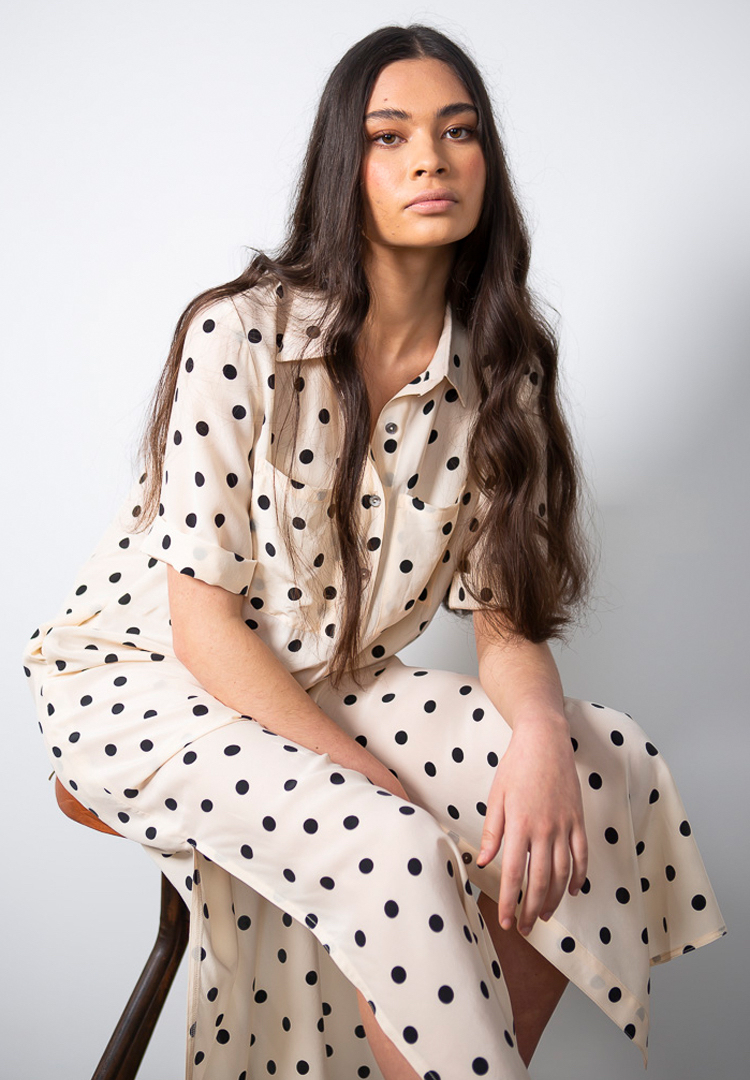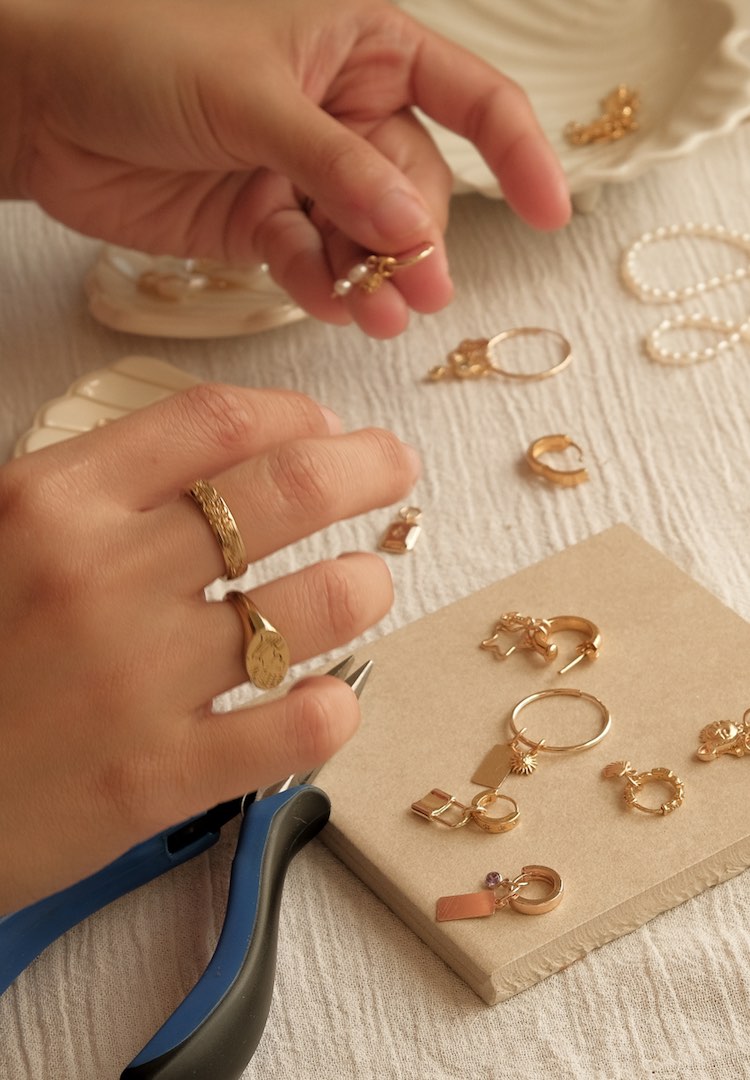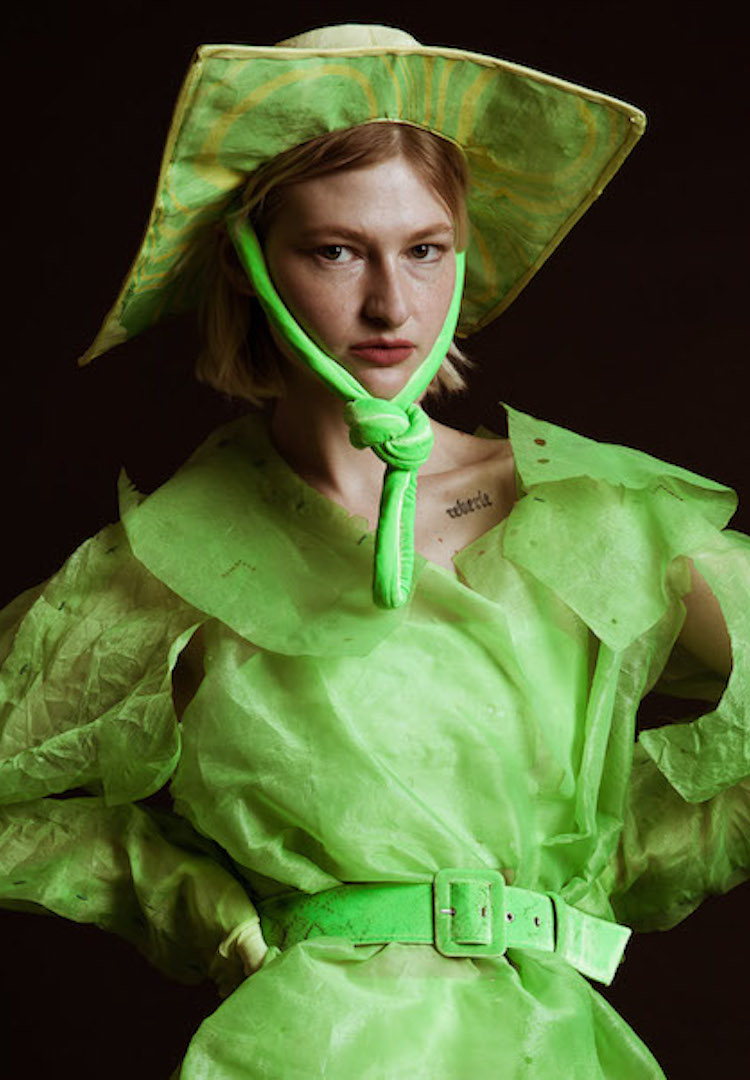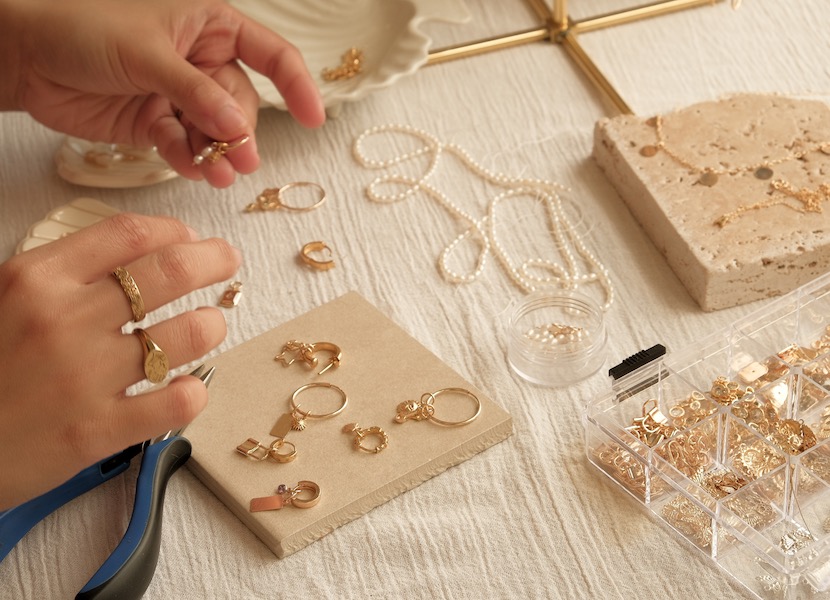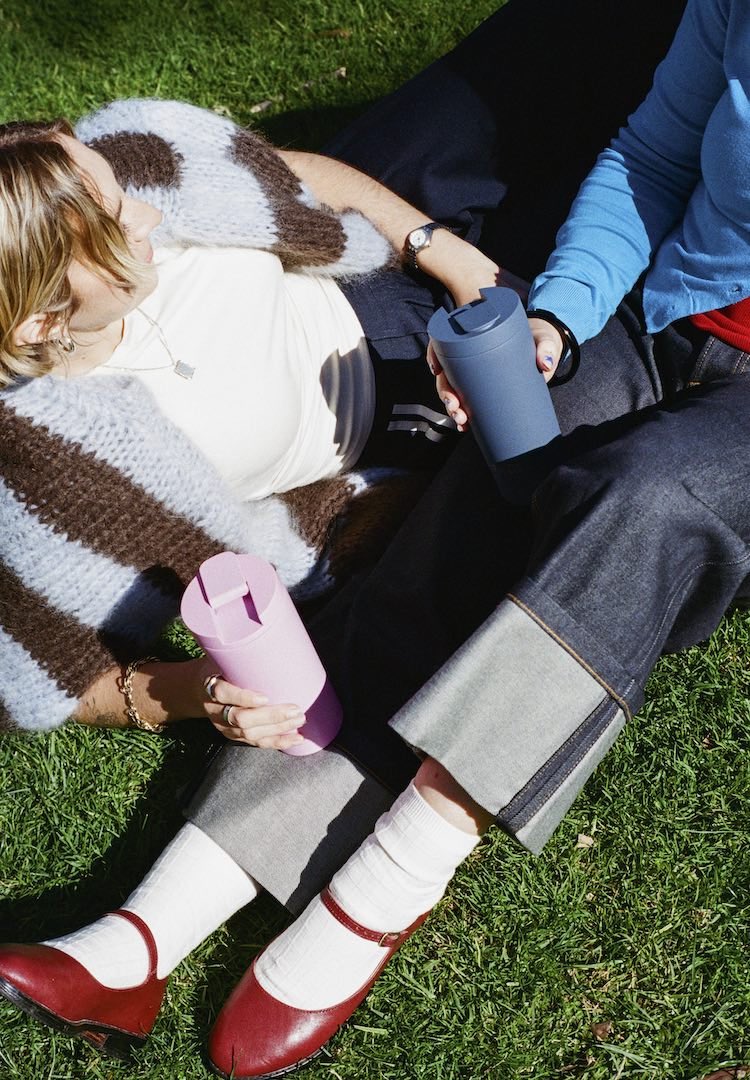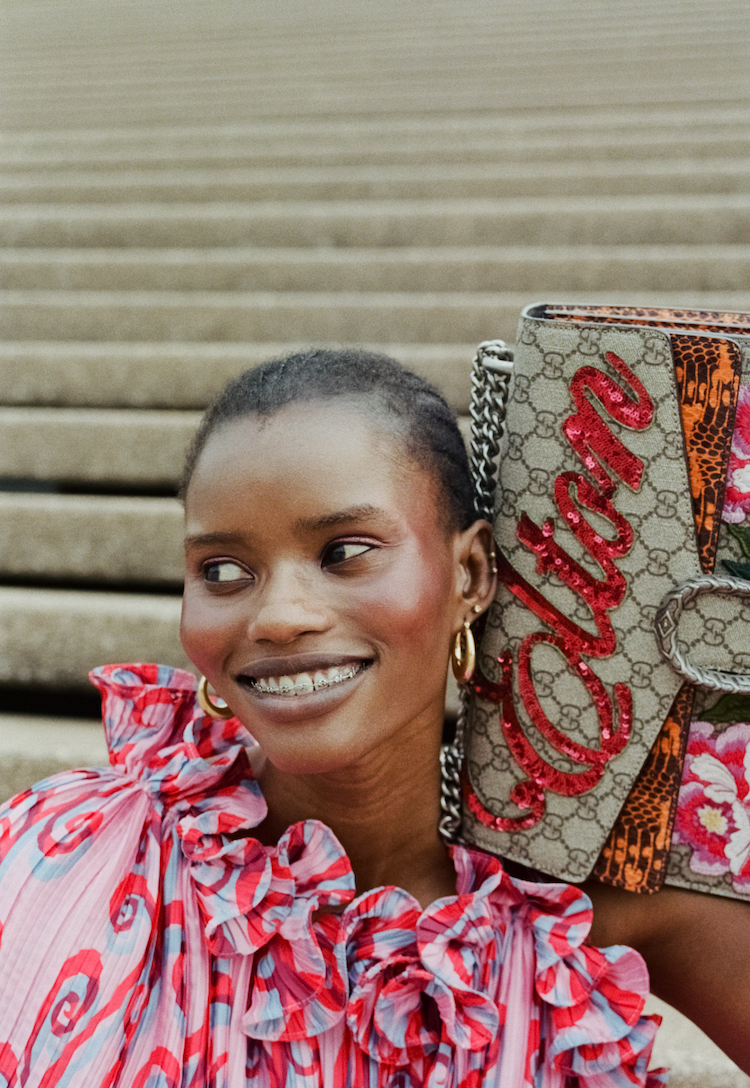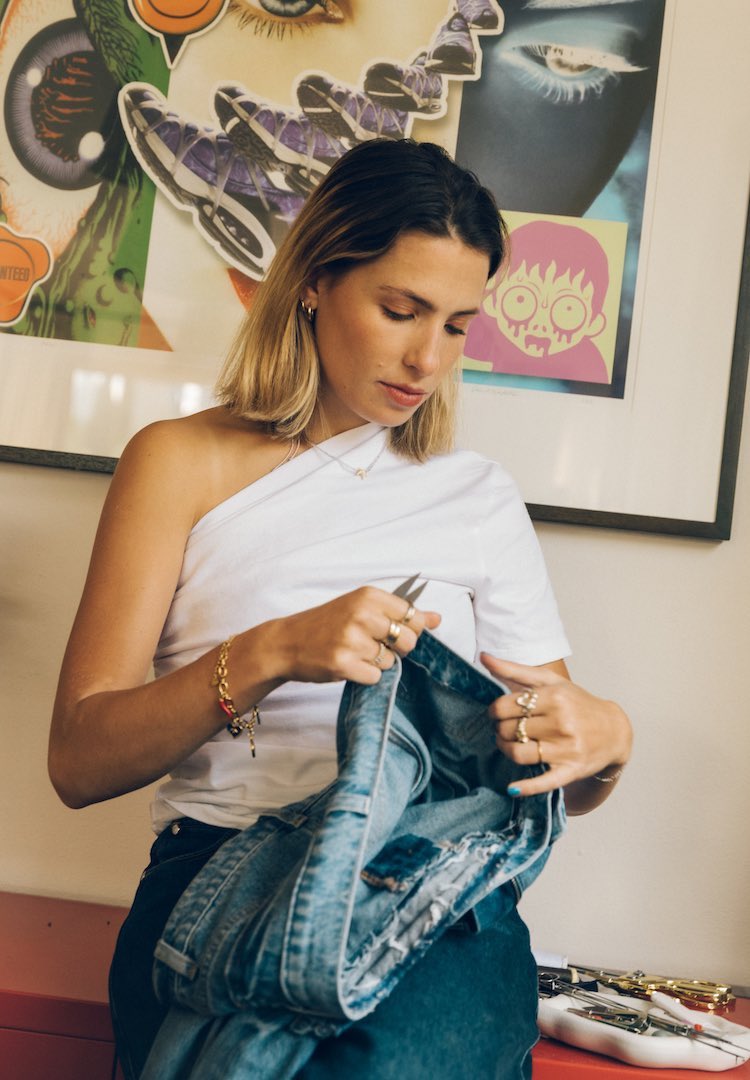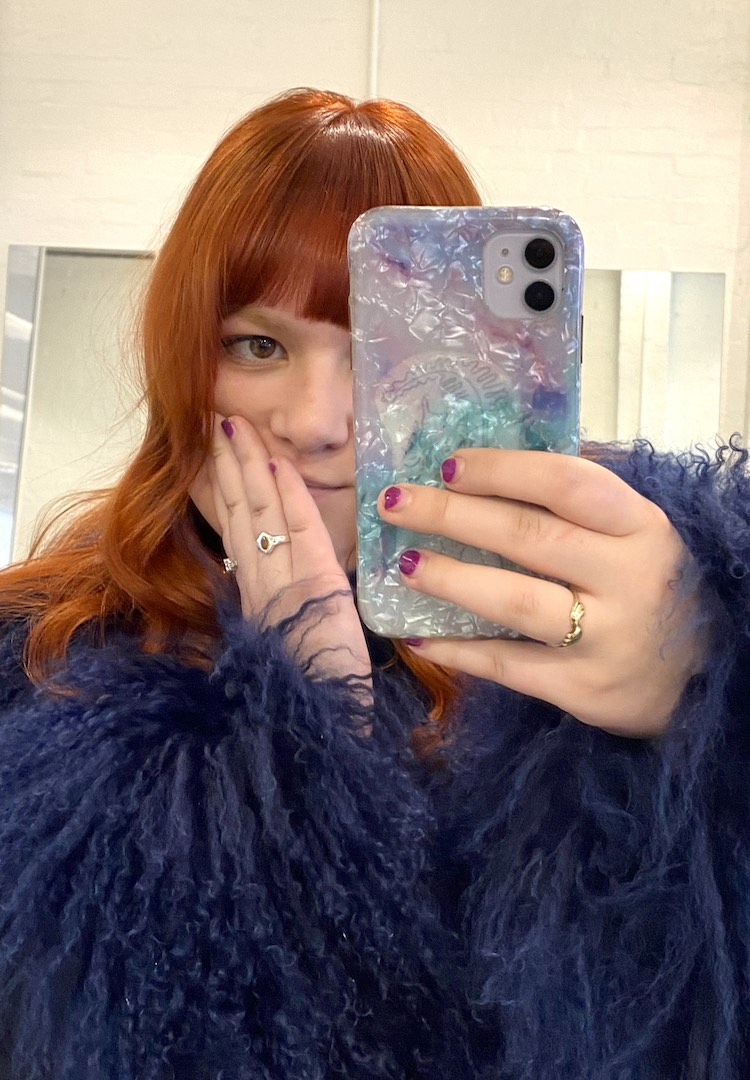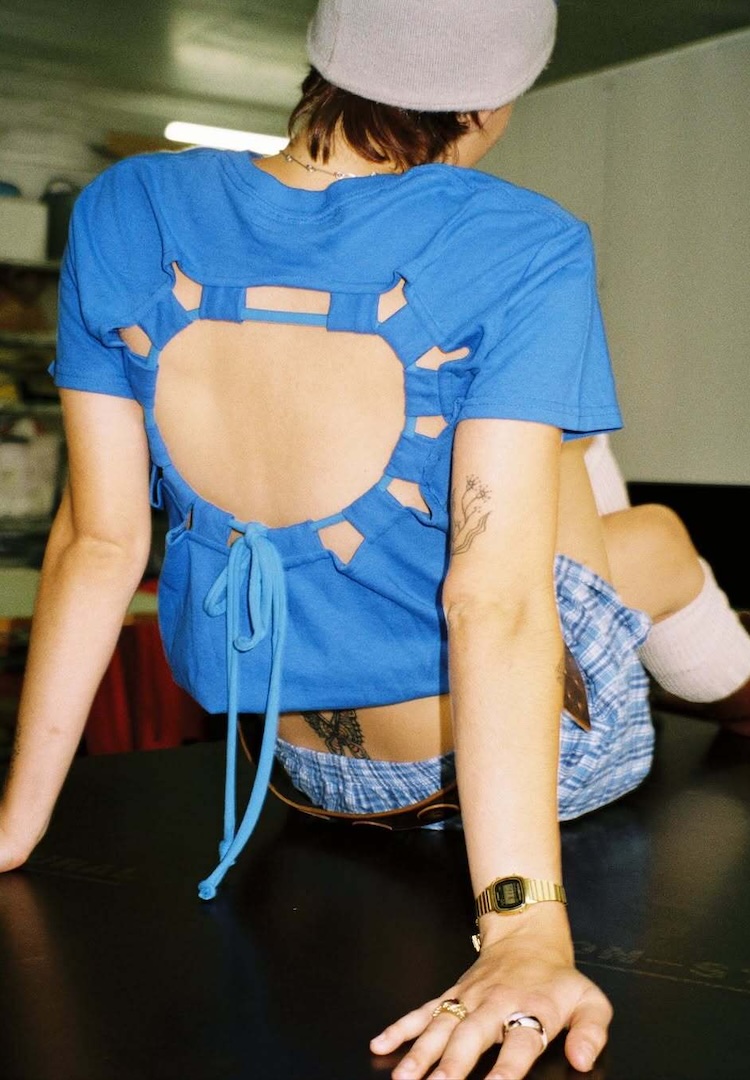What does it actually mean to be an ethical and sustainable jewellery brand?
IMAGE VIA S-KIN STUDIO JEWELLERY
Words by Chi Mai
How to tell if ‘sustainable’ jewellery brands are really putting in the work, according to the founder of one.
Buzzwords like sustainable, ethical and eco-friendly are thrown around a lot in the fashion industry.
And while many brands are in fact as ethical and sustainable as they say they are, sadly there’s also a lot of greenwashing that occurs, with some companies labelling themselves as such in order to tap into the rise of conscious consumerism without those labels actually reflecting in their practices.
Looking for some similarly thought-provoking reads? Subscribe here and we’ll send them straight to your inbox.
For consumers, it can be confusing to differentiate between what’s real and what’s not.
As the owner of an ethical and sustainable jewellery brand, S-kin Studio Jewelry, I’m peeling back the curtains to tell you how we operate day-to-day in order to earn those labels.
By sharing our practices and being fully transparent, I hope it gives you, the customer, an idea of what to look for when shopping from supposedly sustainable brands.
So, what is the difference between being an ethical brand and a sustainable brand?
If you are an ethical brand, you’re focused on ensuring fair treatment to everyone working along the supply chain. In reality, this refers to things such as fair wages, safe working environments, development and culture policies, and generally treating workers as human beings in a modern workplace.
If you are sustainable on the other hand, your main focus is on the environmental impact of your product and production. Looking through the lens of jewellery manufacturing, this would cover recycled jewellery as well as things such as reducing waste, using eco-friendly resources to make and transport products, and sourcing low-impact materials and gemstones.
While there is no right or wrong, and one is not necessarily better than the other, it’s important that these environmental and human-related factors are considered and addressed across a brand’s supply chain – especially if they’re using these labels to promote their brand.
Here are some of the ways we at S-kin strive to be both ethical and sustainable.
Production
A commitment to ethical manufacturing means that all of S-kin’s products are only produced in small batches and turnover tends to take longer.
We hand-make many of our pieces in our Melbourne studio and partner with an ethical manufacturer based out of Mumbai for our bespoke jewellery collections. Finding a manufacturer who shared our ethos and values was difficult but well worth the wait. This manufacturer is a small, predominantly family-owned business where 100 per cent of staff are women. The factories are also:
- Certified members of Sedex
- Certified members of the Responsible Jewellery Council
- Socially accredited by BSCI for Ethical and Legal Treatment of Workers
- Carbon neutral
- A place of Fair Work, which ensures a living wage, insurance, paid public holidays and more
Sourcing materials
Materials are never wasted and any excess is recycled for another production run or reused for sample production. S-kin sources all of its gold fill findings from Brazil and the USA, as they have the most experience and knowledge in sustainably producing gold-fill.
70 per cent of our sterling silver is sourced from within Australia to reduce travel emissions, while the remainder is sourced from Italy, India and the USA. Freshwater pearls are sustainably sourced from WA, while synthetic cubic zircons are used instead of diamonds.
View this post on Instagram
Packaging
S-kin integrates eco-friendly packaging across all areas of the business, using a combination of organic cotton pouches, recycled paper boxes, biodegradable protective wrap packaging (using GreenWrap instead of bubble wrap) and compostable satchels (from The Better Packaging Co.).
We’ve also replaced all the tape we used previously with either cardboard tape or cellulose tape made from plant-based materials.
Distribution
We offset the greenhouse gas emissions of all deliveries by opting for carbon-neutral shipping and contributing to investments in climate protection projects.
Giving back
S-kin is a member of 1% for the Planet, where we contribute 1 per cent of our gross sales per year to help fund high-impact, non-profit organisations that work towards a more sustainable future. 1% for the Planet is an organisation founded on the belief that we all have a responsibility to protect our planet.
Bur like any business, S-kin isn’t perfect, nor am I claiming it to be. We realise that to be sustainable and ethical means continuously growing and learning how to be better. As a business, we have improvements to make and big goals for the future.
What I hope this shows is that we are a business that cares, and we have procedures and practices in place that take our planet and its people into consideration.
Most importantly, if you are ever unsure about how exactly a brand is being ethical or sustainable, don’t be afraid to dig around and ask questions. After all, transparency is key.
All that being said, what should you look for when buying jewellery online?
When assessing your new jewellery purchase, consider whether ethical manufacturing or sustainability is more important to you.
If ethical manufacturing is important to you, look for information regarding the production of your jewellery. In particular, where is the jewellery made? Who makes it? How are the jewellery makers treated? When investigating wages, make sure the brand is paying a living wage instead of minimum wage, as the two figures vary vastly.
If sustainability is important to you, look for information regarding the overall supply chain. Are the materials recycled? How are distribution and packaging addressed? What happens at the end of a product’s life cycle? When looking at materials, aim to purchase gold filled or solid gold, as gold plated or lower quality materials can wear quicker and produce more waste over the course of their lives.
Chi Mai is the founder and creative director of S-kin Studio Jewellery. To learn more about the brand’s ethics and practices, head here.

